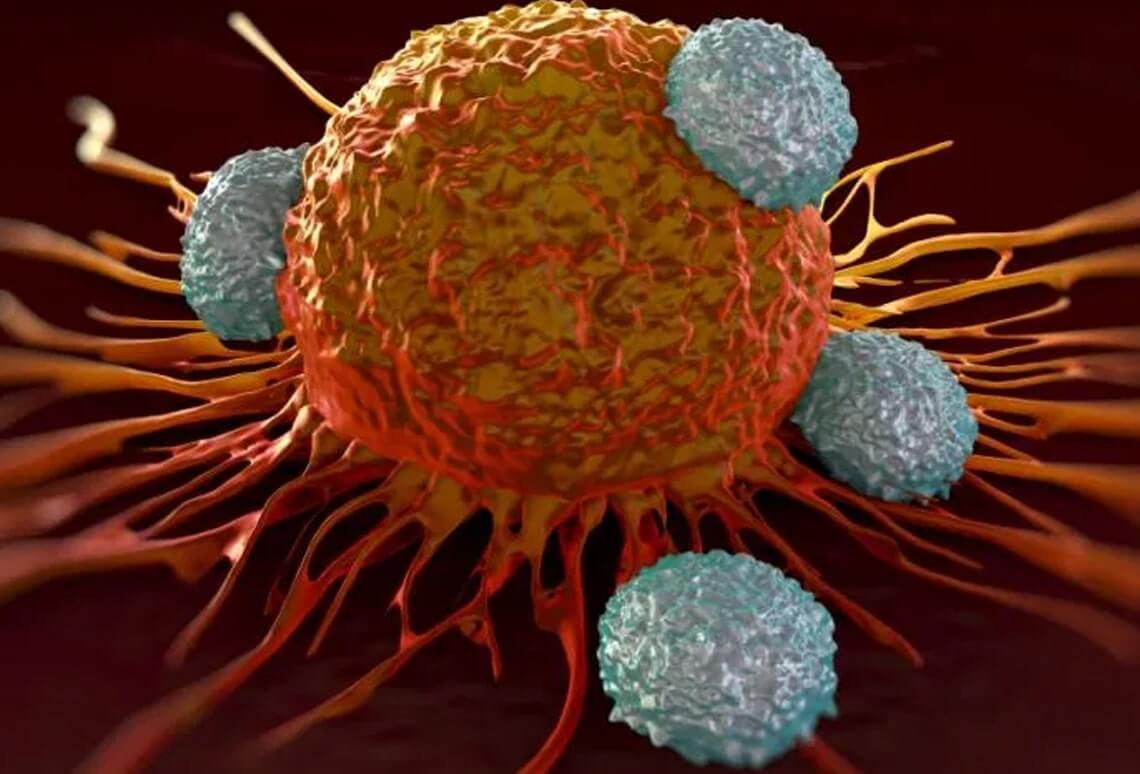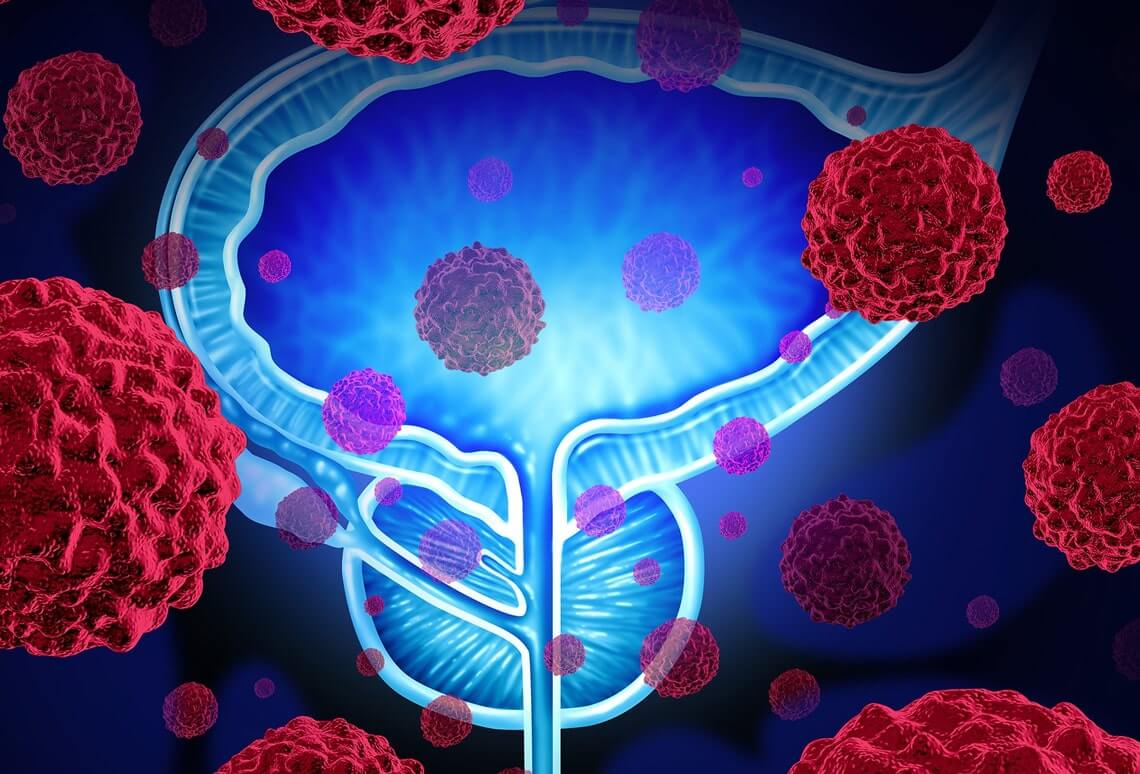Prostate Cancer Treatment in Delhi
Prostate Cancer Treatment In Delhi - Prostate cancer is considered as the most common cancer in men and is a common cause of death in many individuals. However, screening with Prostate Specific Antigen(PSA) test can reduce the number of deaths from prostate cancer. This is slow growing cancer and many men do not benefit from the treatment as this causes long term side effects with urinary and sexual dysfunction. Hence screening should be properly done as per specific guidelines for early detection and diagnosis of cancer so that treatment can be effectively taken to eradicate from the beginning.
Prostate cancer is also named carcinoma of the prostate. It is caused from the development of the cancer cells in the prostate. Prostate is a gland developed in the productive system of the male. Most of the cancer cells in the prostate are the slow growing, however quick growing cells are also quite possible. The additional risk with the prostate cancer is that the cancer cells are possibly spread to the surrounding parts of the body, especially the lymph nodes and bones.
Prostatic enlargement can also be due to cancer. The symptoms of this are indistinguishable from the benign enlargement. Diagnosis is made by a combination of physical examination, blood test (Serum prostate specific antigen) and biopsy. Once the diagnosis is established the next step is to stage the disease.



Staging of prostate cancer treatment is done by CT / MRI scans of the abdomen. AS this cancer has a tendency to spread to the bones, a scan for bones is also important. The stages of prostate cancer could range from 1- 4.
Treatment depends upon the stage of the cancer
Stage 1 - options are Surgery
, Radiotherapy
Stage 2 - options are Surgery
, Radiotherapy
Stage 3 - options are Hormonal therapy
, Surgery after downstaging
, Radiotherapy after downstaging
Stage 4 - options are Hormonal therapy
, Chemotherapy
Prostate Cancer Signs & Symptoms
When the prostate cancer is not developed and in the earlier stages, there will be no clear symptoms. However, when the cancerous cells are grown, the signs and symptoms that are experienced, will be as the following.
1: Frequent urination
2: Difficult to start the steady stream of the urine
3: Difficult to maintain the steady stream of the urine
4: Nocturia, which is increased urination, especially during the nights
5: Blood found in the urine, called hematuria
6: Painful urination, called dysuria
According to the research done, about two third of the prostate cancer patients have not experienced any of the symptoms, whereas one third of the patients have experienced one or more of the above symptoms.
When the condition goes beyond the acceptable levels and go with the advanced levels, there will be additional following symptoms, like the following.
1: Bone pain
2: Pain in ribs
3: Pain in pelvis
4: Leg weakness
5: Urinary incontinence
Prostate Cancer Diagnosis
The important diagnosis done for the prostate cancer is the biopsy. This is the only test that is performed and can confirm the problem completely. The test involves small pieces removal from the prostate. These small pieces are examined under microscope. But, before biopsy is done, there is another test importantly conducted is the less invasive test.
Apart from the above two tests, there are also other tests done to confirm by gathering some more information relative to the urinary tract and prostate. It includes the test called DRE or Digital Rectal Examination that could reveal the abnormalities related to the prostate. Another test is the cystoscopy that could reveal the condition of the urinary tract, viewed from inside the bladder. Transrectal ultrasonography is another test that could provide a clear picture of the prostate, through the sound waves.
Guidelines For Prostate Cancer Treatment In Delhi
The guidelines to screen prostate cancer have been issued by the following organizations:
American Cancer Society(ACS) guidelines
According to the guidelines last updated in the year 2010, ACS generally not implies for any routine screening in the men of any age group. Healthcare provider should give clear information about the uncertainties, risks, and benefits of screening to men, even though don’t exhibit such symptoms and who can have 10 years of life expectancy. Men should be provided with information at the starting age such as,
Age 50 - those who are at average risk of getting the cancer
Age 45- Those at higher risk with one first-degree relative diagnosed with prostate cancer.
Age 40- Those at higher risk with more than one first-degree relatives diagnosed with this cancer.
Those men who are in a dilemma whether to be screened or not, our healthcare provider can make the decision of screening in you taking into account your general health, values or preferences. The screening process involves a PSA test and a DRE(Digital Rectal Exam). If screening does not detect any cancer, the time between subsequent screenings depends on the results of the blood test, as follows:
PSA < 2.5 ng/ml – Retesting may be done every 2 years
PSA ≥ 2.5 ng/ml – Retesting should be done annually
National Comprehensive Cancer Network (NCCN) Guidelines
According to these guidelines, a baseline evaluation of an individual should be done with history and physical examination that includes the following:
Family history
Medications
History of prostate disease and screening, including prior PSA and/or isoforms, exams, and biopsies
Race
Family or personal history of BRC1/2 mutations
The clinician should also discuss the risks and benefits of the baseline PSA test to the patient and recommend to go for baseline DRE to identify high-risk cancers associated with normal PSA. In patients 45-75 years of age, subsequent evaluation is based on the results of those tests, as follows:
PSA < 1 ng/mL, DRE normal (if done): Repeat testing at 2–4 year intervals
PSA 1-3 ng/mL, DRE normal (if done): Repeat testing at 1–2 year intervals
PSA >3 ng/mL or very suspicious DRE result: Evaluate for biopsy
American Urological Association
These guidelines do not recommend routine screening for men under following age categories:
Any man with a life expectancy less than 10-15 years
Men under 40 years
Men between ages 40 to 54 years at average risk
Men over age 70
Men who fall under the age category of 55 to 69 years PSA screening is done depending on their shared decision making of men considering the balance between risks and benefits. Routine screening of two years or more can be recommended.
U.S. Preventive Services Task Force (USPSTF) These guidelines were updated in the year 2012, considering the patient’s own preferences and values. Individuals are asked to make their own decisions before which should never be ordered.
European Society for Medical Oncology (ESMO) These guidelines recommend against population-based PSA screening for prostate cancer, as well as a screening of asymptomatic men over 70 years old.
European Association of Urology/European Society for Radiotherapy and Oncology/International Society of Geriatric Oncology (EAU/ESTRO/SIOG)
According to these revised and joint guidelines, those men who are being informed and request for screening should be given a PSA test and to undergo a DRE. PSA testing should be offered to the following groups at elevated risk for developing prostate cancer
Men > age 50
Men > age 45 and a family history of prostate cancer
African-American men > age 45
Men with a PSA level of > 1 ng/mL at age 40
Men with a PSA level of > 2 ng/mL at age 60
Follow-up testing at intervals of 2 years for the following at-risk groups:
Men with a PSA level of > 1 ng/mL at age 40
Men with a PSA level of > 2 ng/mL at age 60
Postpone follow-up to 8 years in those not at risk.
Dr. Anirudh Kaushik. is one of the most experienced Prostate Cancer Doctor in Delhi who has the best Prostrate clinic in Delhi and Gurugram. He is an expert in treating patients who have kidney stones, renal colic, hydronephrosis, renal and prostate cancer, BPH(Benign Prostatic Hyperplasia) and male infertility problems. The doctor uses cutting-edge technology in diagnosing patient’s cancer thereby rendering appropriate Prostate cancer treatment in Delhi. For a permanent cure of your illness book an appointment with him online or visit his clinic.
Emergency Services
Integrated Emergency Response Services (IERS) By Dr. Anirudh Kaushik provide the best of urological medical evacuation and Kidney Stone Removal Surgery in India
Patient Services
Our patient experience team will help you access a range of available Urology services. Our Holy Family Hospital team stands ready to handle urgent medical needs.
Qualified Doctors
Dr. Anirudh Kaushik, Best Urologist in India is highly qualified and committed to excellence in providing an aesthetically pleasing environment to ensure quality in medical.

